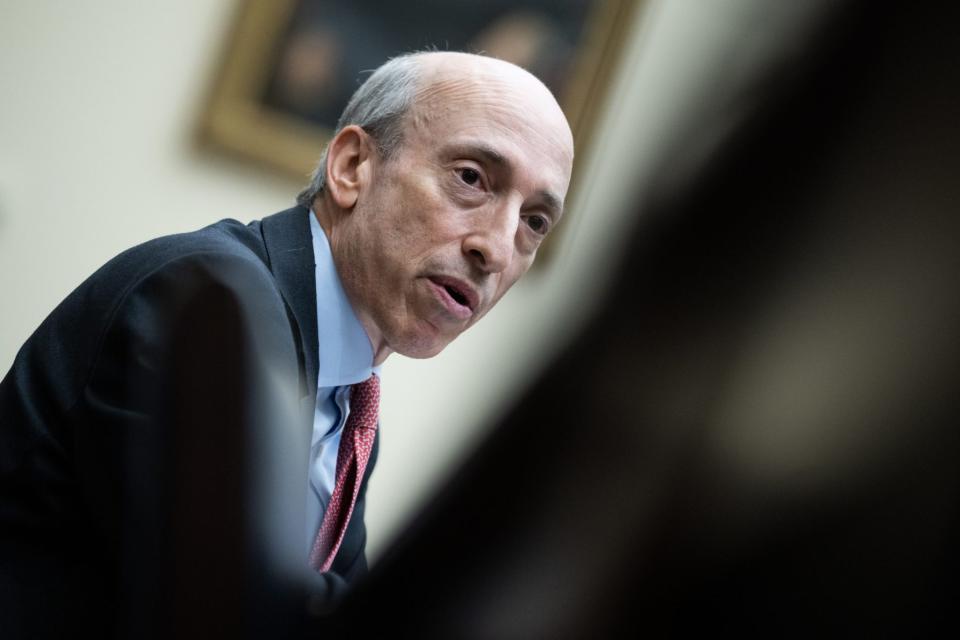Judge scolds SEC for apparent deception in crypto case, threatens to sanction agency

A federal judge has rebuked the Securities and Exchange Commission over its treatment of a crypto firm, expressing concern the agency had made “materially false and misleading representations” in order to freeze millions of dollars in assets belonging to the project.
The case, filed in Utah federal court, concerns a firm called Digital Licensing Inc., or DEBT Box. In its complaint, filed this summer, the SEC alleged the project had defrauded investors out of nearly $50 million by selling unregistered securities called “node licenses.”
As part of the initial process, the SEC successfully obtained a temporary restraining order and asset seizure through a so-called ex parte application—meaning the crypto firm was not informed of the proceedings and was not able to challenge them in court at the time.
These types of one-sided proceedings are uncommon and typically take place when a government agency fears that notifying the defendant will result in their destroying evidence or whisking assets overseas. Meanwhile, a temporary restraining order requires a party to show a high likelihood of “irreparable harm”—a high bar to clear.
In his Thursday order, U.S. District Judge Robert Shelby explained he had agreed to grant the SEC’s request because the agency’s lawyer, Michael Welsh, had said the crypto company was actively closing bank accounts—including 33 in the last 48 hours—as part of a bid to move the firm to Abu Dhabi and beyond the reach of U.S. regulators.
This turned out to be untrue, however. In his order, Shelby argued that some of the SEC’s arguments were “entirely without merit and misstate the record.” He wrote that subsequent legal proceedings revealed that no bank accounts had been closed during the 48-hour window and that the company had already transferred much of its operations months before. He also found that it was banks, not the company, that had closed certain accounts and that one alleged overseas transfer of $720,000 the SEC had used to justify the ex parte seizure had actually been a domestic transfer.
Shelby wrote that he was “troubled” by the SEC attorney’s misrepresentation of the account closures because there was another attorney on-screen, as well as two investigative staffers off-screen, who did not clarify or correct the attorney’s statement, nor was it addressed in later filings.
The judge also argued that the SEC has accused the crypto company of blocking investigators from viewing its social media sites, saying the agency had not shown any evidence to suggest the firm had even known about any investigation.
Given all this, Shelby concluded that the SEC had possibly deceived the court in its description of the facts used to justify the earlier orders.
“The court is concerned the Commission made materially false and misleading representations that violated Rule 11(b) and undermined the integrity of the proceedings,” wrote Shelby, citing a federal court rule that says written facts submitted to a judge must be supported by evidence.
SEC faces sanctions
The document issued by Shelby came in the form of a “show cause order”—a request that in this case demands the SEC provide reasons why the Utah court should not punish the agency for its behavior. While such orders are not uncommon, they are typically directed at private parties and very rarely at government agencies.
The order on Thursday concludes with a list of questions asking the SEC to respond to specific examples of apparent falsehoods, including the agency’s claims made about the closed bank accounts and the social media blocking.
While the tone of Shelby’s order is restrained, the judge appears to have been angered by the fact that the SEC submitted the apparent misstatements in an ex parte context and for a temporary restraining order—legal processes that courts are mostly reluctant to grant as they deprive defendants of due process. In his filing, the judge states that he is “concerned” the SEC “undermined the integrity of the proceedings.”
The federal rule cited by Shelby doesn’t provide specific sanctions for given violations but rather proposes a range of measures from a financial penalty to a directive that “suffices to deter repetition of the conduct.”
The show cause order comes at a time when the SEC is already embroiled in a number of high-profile lawsuits against prominent crypto companies, including Coinbase and Ripple. The embattled industry is likely to seize on Shelby’s order to reiterate long-standing complaints that the agency under Chairman Gary Gensler has pursued a vendetta against it.
An August report from blockchain analytics firm TRM Labs supports the SEC’s core claims that DEBT Box misled investors about mining tokens. A lawyer representing the defendants declined to comment.
In response to a request for comment, an SEC spokesperson said, “We are in receipt of the order to show cause and will respond to the court as directed.”
The agency has two weeks to respond to Shelby’s order.
This story was originally featured on Fortune.com
